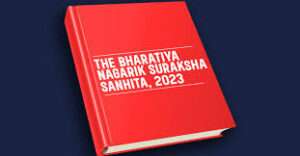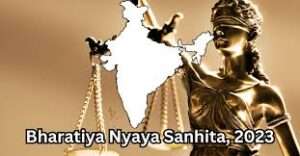
This article has been written by HARDIKA and currently enrolled in B.A.L.L.B. (HONS) Course from the Oxford of East, University of Allahabad.

INTRODUCTION
Defamation means the action of damaging the good reputation of someone, as a reputation is an essential part of human life sometime it is of more worth than human life. Defamation can be defined as a legal injury to a person’s reputation. In Scott vs Sumpson[1], defamation means a false statement about a man to his discredit. In other words, defamation refers to harming another person’s reputation. The Supreme Court in Mohd. Abdulla Khan vs Prakash K. [2]summarised the ingredients of the offence, a person should have made some imputation concerning another person:-
- Such imputation must be either:
- With intention; or
- With knowledge: or
- Having reason to believe;
- Imputation could by :
- Words either spoken or written; or
- Making signs: or
- Visible representations
The difference between making an imputation and publishing is the same for example if A tells B that B is a criminal then A makes an imputation; if A tells C that B is a criminal then A publishes the imputation.
Makes or publishes any imputation concerning any person- Every such person who is engaged in composing, dictating, writing, or in any way contributing to the making of a libel is the maker of the libel.
Publication of defamatory matter- for the offense of defamation publication of defamatory matter is essential, it should also be communicated to some person other than the person to whom it concerns. Where the defamatory matter is communicated to the person defamed, such communication will not amount to publication.
Howdy, you all! Welcome to your page of knowledge. You will find different legal blogs, the latest news, current affairs, and many more on this channel. This is the initiative to develop the knowledge of the law in the world, especially for you.
In N.L. Shah vs Patel Maganbhai Revabhai[3], an interesting situation arose for decision as there was agitation of lawyers in Gujrat in connection with the appointment and transfer of Chief Justice of High Courts. On account of the agitation the lawyers ceased to participate in court proceedings and resorted to ‘satyagraha’. An editorial in a newspaper criticized as to whether it behoves the lawyers as a class to resort to strike. The lawyers were inter-alia described as “kajia Dalal” which means dispute broker, in the editorial and by most of the lawyers of Gujrat. The word was held to be used about the lawyers as a class and is not referable to a determinate section of lawyers, to those who participated in the agitation. The court distinguished between character and Reputation. The term reputation means “what is generally said or believed about the persons or things”. Character means fortitude or moral constitution. It has no relevance to the belief or opinion of others in respect of a person. Therefore, the character is what a person “actually is”, while “reputation” is what “Neighbours” and others say “what he is”.
PUBLICATION OF DEFAMATORY MATTER IN NEWSPAPER
A newspaper stands, in matters of defamation, in the same position, as members of the public in general. The publisher of the newspaper shall be responsible for the publication of defamatory matter whether he was aware of that or not. But when we talk about the position of the Editor, it is quite different from that of publisher as they(Editor) may escape from the liability the whatsoever defamatory matter published was not under their presence, and they have no knowledge about the same subject matter and they had in good faith entrusted the temporary management of the newspaper during their absence to a competent person.
In the Case Ashok Kumar Jain vs State Of Maharashtra[4], it was held that where a defamatory statement against a person is published in a newspaper, the editor , printer and publisher who has made declaration and is shown in paper as such is liable. Where it is alleged that the chairman of board of directors of company and its general manager took part in selling out newspaper, it is indicative that they were having prior knowledge of defamatory matter in paper which they could have prevented but they did not therefore they cannot escape the liability under section 502 unless they can make out a case of exception under section 499.
IMPUTATION SHOULD HAVE BEEN MADE BY WORDS EITHER SPOKEN OR INTENDED TO BE READ BY SIGNS OR BY VISIBLE REPRESENTARTION: In India a person can be defamed not only by writings, he can also be defamed by spoken words. Here at this point of law of defamation differs from English law of defamation. Under English law only writing, printing, engraving, or some other process only can constitute defamation. Under that law spoken words furnish ground for a civil action.
In the Indian penal code the word defamation has been used to denote what is libel or slander under English law. The words ‘ visible representation’ will include every possible form of defamation which ingenuity can devise. Thus, a statute, a caricature, an effigy, chalk marks on a wall, signs, or pictures may constitute a libel, in addition to spoken words.
Intending to harm, or knowing or having reason to believe that such imputation will harm: There must be an intention to harm the reputation of the complainant or the knowledge that the imputation will harm the reputation of such person. The test to determine whether any statement is defamatory or not is whether, under the circumstances in which writing was published, a person of reasonable prudence to whom publication was made would be likely to understand it in a libelous sense.
DEFAMATORY ARTICLE
In M.P. Narayana vs M.P. Chako[5], it was held that there were an article is published in many parts and some containing defamatory materials, others not, in such a case article as a whole must be read. The impact and effect of the imputation has to be considered in the background of the entire facts and circumstances stated therein. If the disreputable part can be removed by other parts and the conclusions, then no prosecution for defamation can be launched by picking and choosing the disreputable part alone.
EXPLANATION 1:
This explanation will come into operation when-
- The imputation would have hurt the deceased’s reputation, and
- It would also have hurt the feeling of his family and relatives
A suit was brought by the heir and nearest relation of deceased person for defamatory words spoken of such deceased person but alleged to have caused damage to the plaintiff as a member of the same family, it was held that the suit was not maintainable.
EXPLANATION 2:
An action for libel will lie at the suit of an incorporated trading company in respect of a defamation calculated to injure its reputation in the way of its business. A corporation has no reputation apart from its property or trade. It cannot maintain an action for a defamation merely affecting personal reputation.
EXPLANATION 3:
A statement innocent in form or in the form of an alternative will amount to defamation if it is ironical.
EXPLANATION 4: this explanation makes it clear that that the term referred to in the explanation has reference to imputation on a man’s character made to lower him in the estimation of others and not of himself. Thus, describing a woman that she has paramours wherever she goes, is per se defamatory.
There are certain exceptions of the general law of defamation, if someone falls under these exceptions then they will not be subject to the punishment of defamation:
EXCEPTION 1:
The requirements of this exception are:-
- That the impugned statement must be shown to be true; and
- That its publication must be shown to be true for public good.
No amount of truth will justify a libel unless it is established that its publication is for public good. Where the imputation is good but it is not published for public good but only for a community such a publication cannot be held to be good. When the allegations are themselves defamatory and they are not proved true, no question of fair comment will arise.
EXCEPTION 2:
Any person occupying a public position renders himself open to criticism for his actions while discharging his functions from the position to criticism for his actions while discharging, his functions from the position he occupies. Such criticism must be made in good faith and it must relate to actions of public servants. Good faith presupposes a reasonable degree of caution in making an imputation that one face of it is defamatory. It does not merely imply the absence of ill will. In order that the comment may be fair:
- It must based on facts truly stated:
- It must not impute corrupt or dishonorable motives to the person whose conduct or work is criticized except in as far as such imputations are warranted by the fact;
- It must be an honest expression of the writer real opinion made in good faith;
- It must be for the public good.
Fair criticism, however, does not justify a personal incentive since an attack on a person’s private life is not privileged but sometimes a private question may become a public one if the public is called upon to support it. The whole character of a person cannot be under public character alone involved
EXCEPTION 3:
The conduct of publicists who take part in politics or other matters concerning the public can be commented on in good faith. In construing a document the courts are not concerned with what the parties intended but with what the parties did and what they said; the words actually used by them and language actually employed.
EXCEPTION 4:
This exception requires that the report of the proceedings of a Court of Justice should be without malice. It should be a fair and accurate report of what took place before the the tribunal. This exception does not require good faith. It is not confined to judgement and orders but also covers pleadings whether relevant or not. As Supreme said in the case of K. Harendra [6], where the honbl’e court observed that the fourth exception says that it is no defamation to publish a substantially true report of the proceedings of a court of justice but does not make any such concession to proceedings of a house of legislature or parliament.
Exception 5:
The administration of justice is a matter of universal interest to the whole public. Therefore, a free comment on the judgments of the court, the verdict of the jury, and the conduct of parties and witnesses is necessary
EXCEPTION 6:
This exception deals with literary criticism of public performance submitted to its judgement. It covers criticism of book published on literature art, painting, speeches made in public, acting, singing, etc. The criticism must be fair and made in good faith.
EXCEPTION 7:
This exception allows a person under whose authority others have been placed either by their consent or by law to censure in good faith, those who are so placed under his authority so far as regards matters tp which that authority relates
Exception 8:
This exception will be attracted if it is proved :-
- That the person to whom the complaint was made had lawful authority over the officer complained against; and
- That the accusation was made in good faith.
EXCEPTION 9:
Where a defamatory statement is made in good faith for the protection of interest of the person making it, this exception will come into operation. Interest of the person making it, this exception will come into operation.
EXCEPTION 10:
For attracting this exception it must be proved that the accussed intended in good faith to convey a caution to one person against another intending for the good of person to whom the caution was conveyed or to some person in whom the person is interested of for public good.
SECTION 500 : provides punishment for defamation . the quantum of punishment K according to this section may extend to two years, whether with or without fine.
Conclusion: these laws were implemented during Colonial Era hence they need be amended and scrutinized by the Government, as they have lost their significance in the 21st century.
[1] 1882 QBD 491
[2] (2018) 1 SCC 615
[3] 1984 Cr LJ 1790(Guj)
[4] 1986 Cr LJ 1987 (Bom)
[5] 1986 Cr LJ 2002(Kerala)
[6] K Hadendra, 1973 Cr LJ 1637






